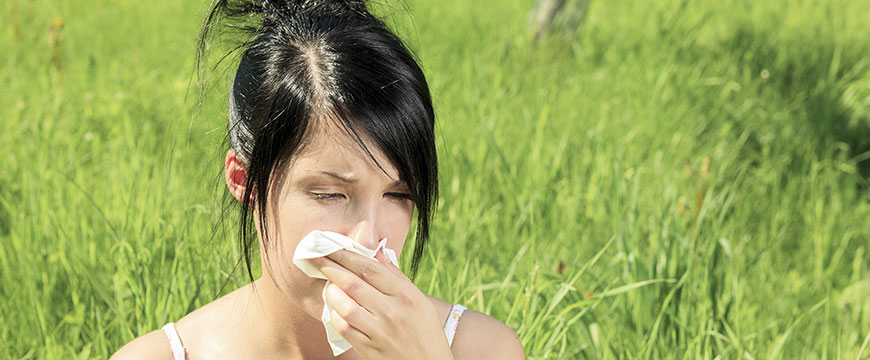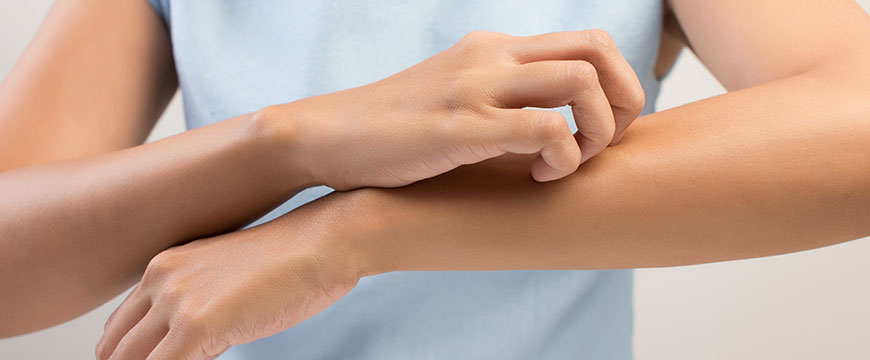Sneezing, itching, watery eyes are all signs that you could be having allergies. 3% of adults in the US suffer from allergies and in this article, we tell you everything you need to know about allergies so that you can take care of yourself. It’s important to understand what you are suffering from so that you are able to take care of yourself and know when you should see an allergy doctor. Allergies can be prevented by simple home remedies and it’s imperative to understand what triggers your allergies.
What Causes Allergic Reactions
An allergy occurs when your immune system encounters an allergen and produces histamines which cause allergy symptoms. Foods such as eggs and peanuts are a common source of allergens. Pollen is a major cause of allergies. Allergies can affect your eyes, skin, mouth, nose or stomach. Each person has a different allergy trigger, one person can be allergic to eggs but not allergic to peanuts. Visit the allergy specialist and get an allergy test to be sure what causes your allergy. Understand your allergies and you will be able to protect yourself from allergens
Most Common Allergens
Below are some of the most common causes of allergies
- Medications such as penicillin, antibiotics
- Animal dander and bee stings
- Dust Mites
- Food such as peanuts, tree nuts, fish, eggs, milk, and wheat
- Latex
- Mold
- Plants and pollen
Allergies may be mild or severe which can be life-threatening. It’s important to visit the allergy physician on the onset of allergies to avoid complications. Severe allergies are known as anaphylaxis and could be life-threatening.
Common Allergies
Below are some common types of allergies
- Hay Fever or Allergic Rhinitis
Hay fever results in the following
Sneezing and runny nose
Itchy eyes, nose, and mouth
Swollen eyes resulting in allergic conjunctivitis
- Food Allergies
Food allergies will cause a tingling feeling in your mouth, swelling in your lips, mouth, and tongue. Food allergies can become severe resulting in anaphylaxis and it’s therefore important that you consult the allergy doctor immediately.
- Atopic Dermatitis
It’s also known as Eczema is not caused by allergies but flares up due to allergies. The symptoms you are likely to experience are itching, swelling, sneezing, and a runny nose. If you suffer from Eczema, make sure you visit the allergy clinic when the allergy symptoms begin to avoid becoming severe.
- Insect Stings
Bees and other insects may cause swelling, itching, and shortness of breath. It’s best to understand what you are allergic because that helps you avoid the allergens. Severe reaction to stings may also lead to anaphylaxis. If you are stung by an insect, make sure you have a remedy or visit the allergy clinic for medication.
What is Anaphylaxis
Anaphylaxis is an extreme reaction to an allergy. It can cause shock and can result from food, medication, insect, and latex. It can happen suddenly and may go from mild to severe very quickly. Below are symptoms of anaphylaxis
- The tightness of the throat
- Difficulty in breathing
- Hives and swelling
- Nausea and vomiting
- Fainting and dizziness
- Rapid pulse and heart will stop beating
If you are at risk of anaphylaxis its best to visit the allergy clinic and the allergy physician will give you medication to ensure that your allergy condition doesn’t become severe. It’s important to inform the people around your condition so that they are prepared in case of anything.
How to Get Relief from Allergies
It’s important to visit the allergy clinic for antihistamines and decongestants to treat certain symptoms of allergies. If you suffer from asthma, make sure you follow your asthma treatment diligently to avoid attacks.
Ask the allergist for home remedies to help ease the allergies.
Keep your environment allergen free. Keep your house free of dust, close the windows when the pollen levels are high. Have a pet room away from your sitting area.
Knowing you your allergies and the cause is key in minimizing allergic reaction. Make sure you understand what causes your allergies and avoid the allergens.
Most of the common allergens can be avoided by simple home remedies. Keeping your house clean and avoid going outdoors when pollen levels are high will help ease your allergies. Visit the allergy clinic and learn simple home remedies that will help ease your allergies






